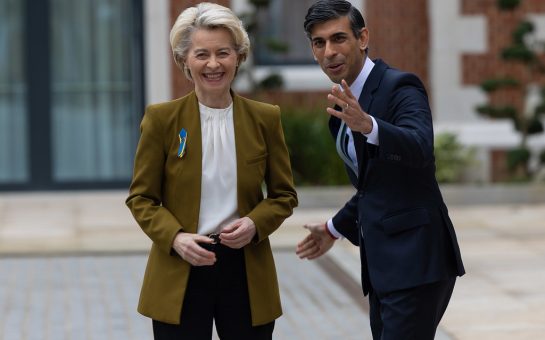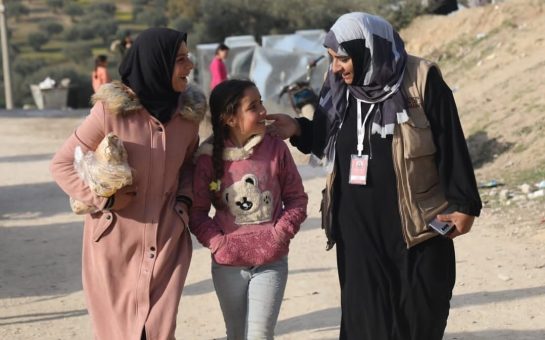The media’s ‘obsession’ with ISIS has taken the focus away from Syria’s growing humanitarian crisis and more political action is needed, according to a Manchester-based community organisation.
Syria has experienced the the worst year since its civil war began in 2011, with 76,000 civilians killed in 2014.
The Failing Syria report, recently published by a global coalition of aid agencies and charities, accuses international powers – particularly the 15-member Security Council – of failing to deliver on pledges to protect innocent victims of the fighting.
Yasmine Nahlawi, from Manchester-based Syrian organisation Rethink Rebuild, believed the rise of jihadist groups like ISIS and the ensuing media war has seemingly deflected attention away from the country’s ongoing crisis.
“The obsession with ISIS by both the media and policy makers has not only taken the focus away from the growing humanitarian crisis, but has also distorted our perception of the conflict itself,” she told MM.
“The conflict is still very much a demand by the Syrian people for freedom and dignity in the face of over forty years of dictatorship.
“ISIS is undoubtedly a major problem in Syria, but it is not the root cause of this catastrophe that we are witnessing.
“What’s missing is the political will to take necessary action to bring an end to the suffering of the people.”
Several key resolutions passed last year called for an end to attacks on civilians, an increase in aid, for the UN to be allowed to operate in Syria without seeking permission from authorities in Damascus.
However, the report indicates a failure to deliver on all of these promises:-
- People are not protected: 2014 was the deadliest year of the conflict so far, with more than 76,000 Syrians killed.
- Aid access has stagnated: 4.8 million people who require aid now reside in areas the UN deems ‘hard to reach’. This is a million more than in 2013.
- Needs have increased: 5.6 million children require aid, a 31% increase from the previous year.
- The humanitarian response in comparison with needs has declined drastically: in 2013, 71% of the necessary funding required to aid civilians inside Syria, along with refugees in neighbouring countries, were provided. In 2014, this had dropped to 57%.
The complexity of the conflict has only been deepened by foreign intervention on all fronts and further damaged the possibility of the free flow of aid promised by the world’s foremost powers.
Over half of the pre-conflict population are now internally displaced.
Ms Nahlawi added: “International inaction, justified upon legal considerations and those of state sovereignty, has allowed for the death of over 200,000 Syrians and the displacement of millions of others.
“Countless Syrians also remain without basic necessities such as food, clean water, shelter, and protection from the cold.”
The unrest began in 2011 with nationwide protests against the regime of President Bashar al-Assad.
Government security forces attempted to forcibly quash the uprising, resulting in the opposition taking up arms to fight back. This opposition has now internally divided into countless factions with conflicting ideologies.
In August 2013, Prime Minster David Cameron narrowly lost a Commons vote on whether the UK should take action against President Assad following allegations about a chemical weapons attack in Damascus.
As the conflict deepens and attracts more foreign intervention, it is difficult to see a light at the end of the tunnel for Syria’s civilian population, as medical care and basic necessities become less and less accessible.
Ms Nahlawi called on people in Manchester and throughout the UK to do what they can to address the core issue – the quest for freedom.
“One of the most powerful things that we can do here is to emphasise that the Syrian conflict remains a struggle of oppressed people against a brutal dictator and that justice for victims of this humanitarian catastrophe can only come with the removal of Assad regime,” she said.
“By recognising the conflict for what it is, we can apply pressure on policy makers and the media to frame the Syrian conflict in this manner and to ensure that justice is served in Syria.
“Of course, there are also a plethora of humanitarian organisations operating within the UK, and people’s contributions to these charities can alleviate the suffering of Syrian civilians.”
You can view a list of charities operating in Syria by clicking here.
Image courtesy of Freedom House via FlickR, with thanks.



